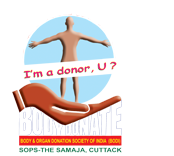Do You Have a Question?
GET HELP
Becoming a donor?
If you donate organs and tissues after death, you can help persons who are very sick. They can keep living if they receive a donor kidney or liver. And thanks to the eye tissue of a donor, they can see again. In the Netherlands, more than 1,000 persons are on an organ waiting list. About 150 individuals die every year while waiting for an organ. A deceased donor donates three organs on average, so that every year these organ donors save the lives of about 800 persons. One would think that this takes care of everyone on the waiting list, but that is not the case. The waiting list just keeps getting longer.
No, you yourself cannot decide who gets your organs or tissues after your death. That is stipulated by law. Everyone must be able to get the same level of healthcare. This is why you cannot be the one determining who you will or will not donate to. An organ goes to the patient on the waiting list who needs it most urgently, and who is the best fit for the organ.
Yes, even if you have an unhealthy lifestyle, it can be helpful to give a ‘yes’ in the Donor registry. A person on the waiting list for a new organ can die if the organ does not arrive on time. Lungs of a smoker may be better than the person’s own lungs, and the liver of a drinker can sometimes help a liver patient. So if you smoke or drink, it doesn’t necessarily mean you cannot donate your organs. What is important is that the organ still be suitable for transplantation. A doctor will properly assess this in advance.
For body donation, the body should be handed over as early as possible to avoid decay. It is better to keep the body on ice slab or in a freezer till it is donated.
In case of brain death the family has to contact the concerned hospital where the patient is kept in ventilator.
Yes, a chronic ill person may also donate body
Yes. One can withdraw the pledge at any point of time.
SUBSCRIBE TO NEWSLETTER
Sign up with your email address to receive news and updates
